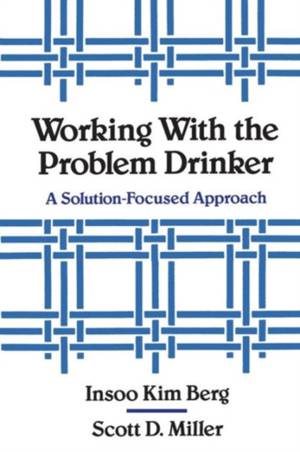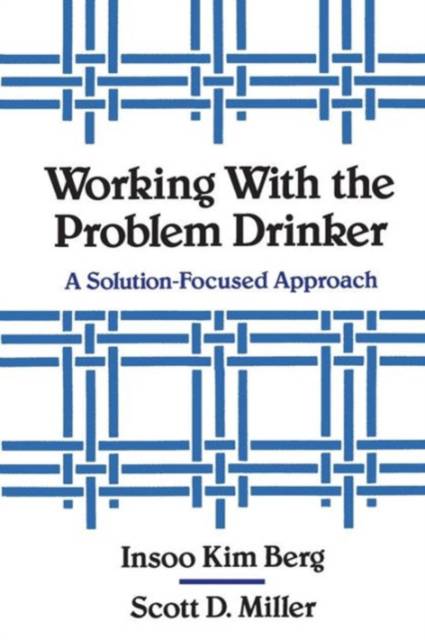
- Retrait gratuit dans votre magasin Club
- 7.000.000 titres dans notre catalogue
- Payer en toute sécurité
- Toujours un magasin près de chez vous
- Retrait gratuit dans votre magasin Club
- 7.000.0000 titres dans notre catalogue
- Payer en toute sécurité
- Toujours un magasin près de chez vous
41,45 €
+ 82 points
Description
At a time when the accepted standard treatment for alcoholism is long-term and expensive, solution-focused therapy, as developed at the Brief Family Therapy Center in Milwaukee, offers a brief and cost-effective alternative. Insoo Kim Berg and Scott D. Miller believe that a focus on solutions, rather than pathology, is the most constructive strategy for working with problem drinkers; their foremost concern is with what works. To this end they don't reject traditional treatment programs; rather, they view them as one part of a flexible and multidimensional approach to alcohol abuse treatment. The authors successfully utilize solution-focused therapy in their work with problem drinkers, but it is their philosophy of working with clients--and within clients' belief systems--to encourage change that is at the heart of their model. The model, grounded in the philosophy of solution-focused brief therapy, introduces a paradigmatic change in the approach to substance abuse treatment. Rather than treating a problem drinker, Berg and Miller work with clients to treat problem drinking. The authors' refreshing blend of respect for their clients and optimism about their ability to stop abusive drinking offers hope to clients who can't fit into traditional long-term programs or who have given up on themselves. This book shows how clients can be helped to construct a future where drinking or substance abuse is no longer a problem. Solution-focused therapy, based on respect for and collaboration with the client, concentrates on success and solutions. Therapists develop goals with the client, rather than imposing "appropriate" treatment objectives. If one solution doesn't work, the technique--not theclient--is blamed and client and therapist go on to "do something different." The authors' model is much more than a list of interventions; it is a multi-faceted approach to treatment, which can adapt to anything that works, whether brief therapy, A.A., or more formal inpatient pro
Spécifications
Parties prenantes
- Auteur(s) :
- Editeur:
Contenu
- Nombre de pages :
- 242
- Langue:
- Anglais
Caractéristiques
- EAN:
- 9780393701340
- Date de parution :
- 01-06-92
- Format:
- Livre broché
- Format numérique:
- Trade paperback (VS)
- Dimensions :
- 156 mm x 237 mm
- Poids :
- 340 g

Les avis
Nous publions uniquement les avis qui respectent les conditions requises. Consultez nos conditions pour les avis.






